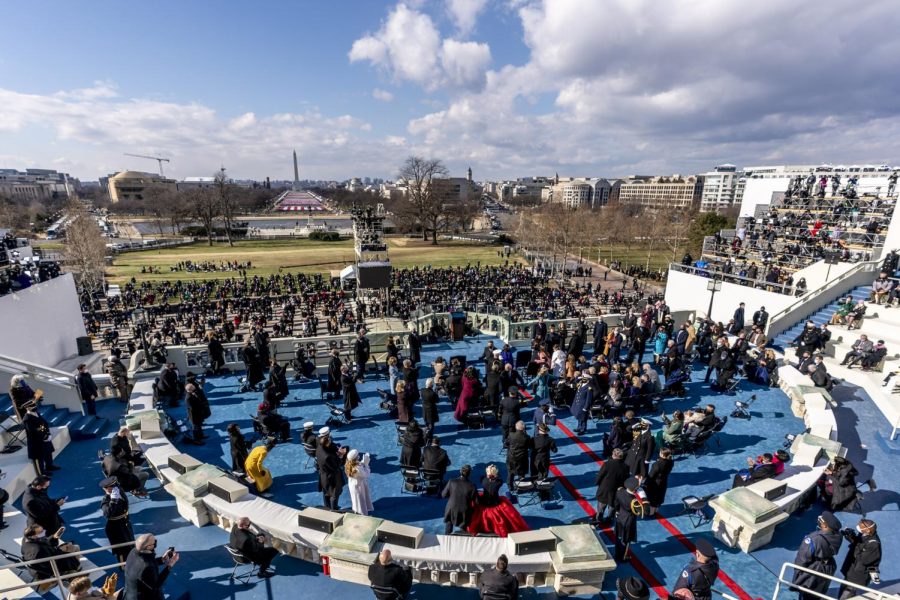An American Holy Day
President Joe Biden and first lady Jill Biden depart after Biden is sworn in as the 46th president of the United States during the 59th Presidential Inauguration at the U.S. Capitol in Washington, Wednesday, Jan. 20, 2021
Jan 28, 2021
A vow, a sermon, a procession and a presider in robes. Watching Joe Biden’s inauguration ceremony last week, I was struck by the prominence of religious themes. Some of these themes were obvious: a prayer read by a Jesuit priest, a quotation from St. Augustine in Biden’s speech and, of course, that massive Bible. But these themes also manifested in much subtler ways.
Chief Justice John Roberts, dressed in his traditional robes, guided Biden through his oath of office –– imagery not unlike that of a priest guiding a couple through their wedding vows. The entire “congregation” then offered its rendition of Amazing Grace, a traditional Christian hymn. The Bidens processed out of the Capitol and, eventually, toward the White House with triumphant music blasting –– the exact way many Chrisitan denominations start and end their liturgy. Of course, I’m not making the argument here that the inauguration is literally a religious event, but I do think it featured undeniable explicit and implicit religious themes.
In a country which professes relative devotion to the separation of church and state, the open religiosity of the presidential inauguration initially struck me as quite odd. But, I’ve come to see the benefit of it all. I think the tradition of the presidential inauguration is best understood as a part of America’s civil religion.
Civil religion is the concept that the symbology and tradition of a state can constitute a sort of religion. The national anthem, national monuments, state funerals and the invocation of God in political speeches are all factors which give shape to the American civil religion.
I think the inauguration, with all of its splendor and religious intonation, fits squarely into that civil religion paradigm. At first, I was somewhat disheartened at this realization, which made the ceremony seem manipulative and exclusionary to nonreligious people. But the more I think about it, the more I think that civil religion –– at least in the context of presidential inaugurations –– can be deeply beneficial.
In the same way religion can ground us in higher principles like faith, love and community, our civil religion can ground us in higher democratic principles like liberty, truth and equality. Indeed, this might be why inaugurations can be an emotional experience. This most recent inauguration certainly was for me. An inauguration is a sort of civic baptism, a cleansing of whatever came before and a hopeful look forward to whatever lies ahead. Maybe I’m naive, but I think that’s quite beautiful.














Sheila Burden • Feb 1, 2021 at 11:24 pm
I think all Americans are hopeful for this new administration !Regardless of our . affiliations we are first and foremost Americans .and want to live in a society that reflects our Judeo Christin views .